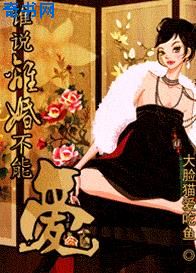生命不能承受之轻-第16部分
按键盘上方向键 ← 或 → 可快速上下翻页,按键盘上的 Enter 键可回到本书目录页,按键盘上方向键 ↑ 可回到本页顶部!
————未阅读完?加入书签已便下次继续阅读!
the proceedings; asked the men whether they were planning to go to the Rossini opera an Italian company was putting on in Geneva the following week。 Meanwhile; Alain the painter sank into greater and greater detail about his new approach to painting。 Franz was ashamed for his daughter。 To put her in her place; he announced that whenever she went to the opera she complained terribly of boredom。
You're awful; said Marie…Anne; trying to punch him in the stomach from a sitting position。 The star tenor is so handsome。 So handsome。 I've seen him twice now; and I'm in love with him。
Franz could not get over how much like her mother his daughter was。 Why couldn't she be like him? But there was nothing he could do about it。 She was not like him。 How many times had he heard Marie…Claude proclaim she was in love with this or that painter; singer; writer; politician; and once even with a racing cyclist? Of course; it was all mere cocktail party rhetoric; but he could not help recalling now and then that more than twenty years ago she had gone about saying the same thing about…him and threatening him with suicide to boot。
At that point; Sabina entered the room。 Marie…Claude walked up to her。 While Marie…Anne went on about Rossini; Franz trained his attention on what the two women were saying。 After a few friendly words of greeting; Marie…Claude lifted the ceramic pendant from Sabina's neck and said in a very loud voice; What is that? How ugly!
Those words made a deep impression on Franz。 They were not meant to be combative; the raucous laughter immediately following them made it clear that by rejecting the pendant Marie…Claude did not wish to jeopardize her friendship with Sabina。 But it was not the kind of thing she usually said。
I made it myself; said Sabina。
That pendant is ugly; really! Marie…Claude repeated very loudly。 You shouldn't wear it。
Franz knew his wife didn't care whether the pendant was ugly or not。 An object was ugly if she willed it ugly; beautiful if she willed it beautiful。 Pendants worn by her friends were a priori beautiful。 And even if she did find them ugly; she would never say so; because flattery had long since become second nature to her。
Why; then; did she decide that the pendant Sabina had made herself was ugly?
Franz suddenly saw the answer plainly: Marie…Claude proclaimed Sabina's pendant ugly because she could afford to do so。
Or to be more precise: Marie…Claude proclaimed Sabina's pendant ugly to make it clear that she could afford to tell Sabina her pendant was ugly。
Sabina's exhibition the year before had not been particularly successful; so Marie…Claude did not set great store by Sabina's favor。 Sabina; however; had every reason to set store by Marie…Claude's。 Yet that was not at all evident from her behavior。
Yes; Franz saw it plainly: Marie…Claude had taken advantage of the occasion to make clear to Sabina (and others) what the real balance of power was between the two of them。
7
A Short Dictionary of Misunderstood Words (concluded)
THE OLD CHURCH IN AMSTERDAM
There are houses running along one side of the street; and behind the large ground…floor shop…front windows all the whores have little rooms and plushly pillowed armchairs in which they sit up close to the glass wearing bras and panties。 They look like big bored cats。
On the other side of the street is a gigantic Gothic cathedral dating from the fourteenth century。
Between the whores' world and God's world; like a river dividing two empires; stretches an intense smell of urine。
Inside the Old Church; all that is left of the Gothic style is the high; bare; white walls; the columns; the vaulting; and the windows。 There is not a single image on the walls; not a single piece of statuary anywhere。 The church is as empty as a gymnasium; except in the very center; where several rows of chairs have been arranged in a large square around a miniature podium for the minister。 Behind the chairs are wooden booths; stalls for wealthy burghers。
The chairs and stalls seem to have been placed there without the slightest concern for the shape of the walls or position of the columns; as if wishing to express their indifference to or disdain for Gothic architecture。 Centuries ago Calvinist faith turned the cathedral into a hangar; its only function being to keep the prayers of the faithful safe from rain and snow。
Franz was fascinated by it: the Grand March of History had passed through this gigantic hall!
Sabina recalled how after the Communist coup all the castles in Bohemia were nationalized and turned into manual training centers; retirement homes; and also cow sheds。 She had visited one of the cow sheds: hooks for iron rings had been hammered into the stucco walls; and cows tied to the rings gazed dreamily out of the windows at the castle grounds; now overrun with chickens。
It's the emptiness of it that fascinates me; said Franz。 People collect altars; statues; paintings; chairs; carpets; and books; and then comes a time of joyful relief and they throw it all out like so much refuse from yesterday's dinner table。 Can't you just picture Hercules' broom sweeping out this cathedral?
The poor had to stand; while the rich had stalls; said Sabina; pointing to them。 But there was something that bound the bankers to beggars: a hatred of beauty。
What is beauty? said Franz; and he saw himself attending a recent gallery preview at his wife's side; and at her insistence。 The endless vanity of speeches and words; the vanity of culture; the vanity of art。
When Sabina was working in the student brigade; her soul poisoned by the cheerful marches issuing incessantly from the loudspeakers; she borrowed a motorcycle one Sunday and headed for the hills。 She stopped at a tiny remote village she had never seen before; leaned the motorcycle against the church; and went in。 A mass happened to be in progress。 Religion was persecuted by the regime; and most people gave the church a wide berth。 The only people in the pews were old men and old women; because they did not fear the regime。 They feared only death。
The priest intoned words in a singsong voice; and the people repeated them after him in unison。 It was a litany。 The same words kept coming back; like a wanderer who cannot tear his eyes away from the countryside or like a man who cannot take leave of life。 She sat in one of the last pews; closing her eyes to hear the music of the words; opening them to stare up at the blue vault dotted with large gold stars。 She was entranced。
What she had unexpectedly met there in the village church was not God; it was beauty。 She knew perfectly well that neither the church nor the litany was beautiful in and of itself; but they were beautiful compared to the construction site; where she spent her days amid the racket of the songs。 The mass was beautiful because it appeared to her in a sudden; mysterious revelation as a world betrayed。
From that time on she had known that beauty is a world betrayed。 The only way we can encounter it is if its persecutors have overlooked it somewhere。 Beauty hides behind the scenes of the May Day parade。 If we want to find it; we must demolish the scenery。
This is the first time I've ever been fascinated by a church; said Franz。
It was neither Protestantism nor asceticism that made him so enthusiastic; it was something else; something highly personal; something he did not dare discuss with Sabina。 He thought he heard a voice telling him to seize Hercules' broom and sweep all of Marie…Claude's previews; all of Marie…Anne's singers; all lectures and symposia; all useless speeches and vain words—sweep them out of his life。 The great empty space of Amsterdam's Old Church had appeared to him in a sudden and mysterious revelation as the image of his own liberation。
STRENGTH
Stroking Franz's arms in bed in one of the many hotels where they made love; Sabina said; The muscles you have! They're unbelievable!
Franz took pleasure in her praise。 He climbed out of bed; got down on his haunches; grabbed a heavy oak chair by one leg; and lifted it slowly into the air。 You never have to be afraid; he said。 I can protect you no matter what。 I used to be a judo champion。
When he raised the hand with the heavy chair above his head; Sabina said; It's good to know you're so strong。
But deep down she said to herself; Franz may be strong; but his strength is directed outward; when it comes to the people he lives with; the people he loves; he's weak。 Franz's weakness is called goodness。 Franz would never give Sabina orders。 He would never command her; as Tomas had; to lay the mirror on the floor and walk back and forth on it naked。 Not that he lacks sensuality; he simply lacks the strength to give orders。 There are things that can be accomplished only by violence。 Physical love is unthinkable without violence。
Sabina watched Franz walk across the room with the chair above his head; the scene struck her as grotesque and filled her with an odd sadness。
Franz set the chair down on the floor opposite Sabina and sat in it。 I enjoy being strong; of course; he said; but what good do these muscles do me in Geneva? They're like an ornament; a peacock feather。 I've never fought anyone in my life。
Sabina proceeded with her melancholy musings: What if she had a man who ordered her about? A man who wanted to master her? How long would she put up with him? Not five minutes! From which it follows that no man was right for her。 Strong or weak。
Why don't you ever use your strength on me? she said。
Because love means renouncing strength; said Franz softly。
Sabina realized two things: first; that Franz's words were noble and just; second; that they disqualified him from her love life。
LIVING IN TRUTH
Such is the formula set forth by Kafka somewhere in the diaries or letters。 Franz couldn't quite remember where。 But it captivated him。 What does it mean to live in truth? Putting it negatively is easy enough: it means not lying; not hiding; and not dissimulating。 From the time he met Sabina; however; Franz had been living in lies。 He told his wife about nonexistent congresses in Amsterdam and lectures in Madrid; he was afraid to walk with Sabina through the streets of Geneva。 And he enjoyed the lying and hiding: it was all so new to him。 He was as excited as a teacher's p






